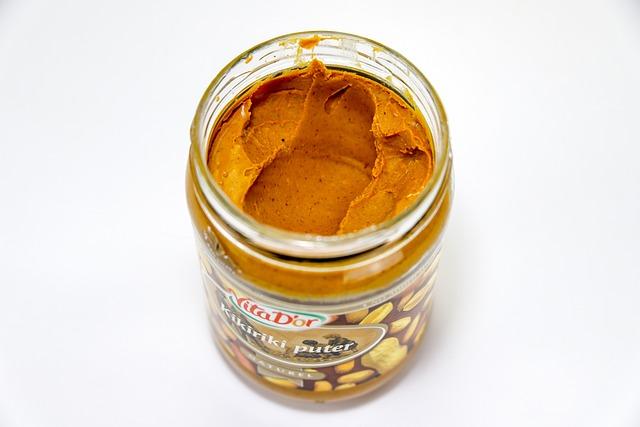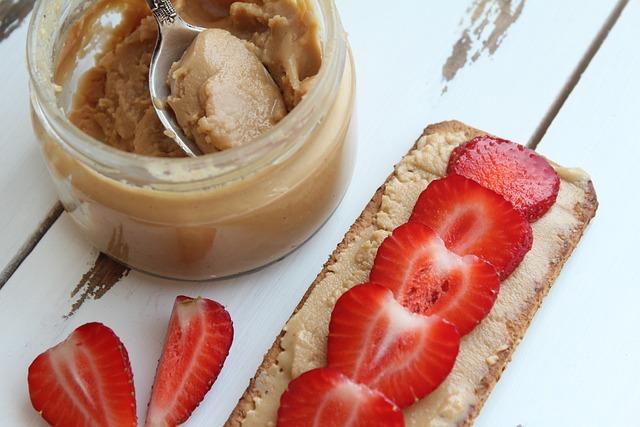When it comes to treating our furry friends, few things are as universally beloved as peanut butter. Its creamy texture and rich flavor make it a favorite not only for humans but also for many dogs. However, as responsible pet owners, it’s crucial to ensure that what we offer our canine companions is safe and healthy. In this article, we delve into the question: Can dogs eat peanut butter? We’ll explore the nutritional benefits, potential risks, and provide guidance on how to choose the best peanut butter for your dog. Join us as we uncover the facts, so you can confidently share this delightful treat with your four-legged friend, knowing you’re making a well-informed decision.
Choosing the Right Peanut Butter for Your Furry Friend
When it comes to treating your canine companion, peanut butter often tops the list of favorite snacks. However, not all peanut butter is created equal, and some may even pose health risks to your dog. To ensure you’re selecting the best option, consider the following:
- Check for Xylitol: This artificial sweetener is toxic to dogs and is found in some sugar-free peanut butters. Always read the label carefully to avoid this ingredient.
- Opt for Natural Varieties: Choose peanut butter that is made with minimal ingredients, preferably just peanuts and a touch of salt. The fewer additives, the better it is for your pet.
- Mind the Salt and Sugar Content: Excessive salt and sugar can lead to health issues like obesity and heart disease. Look for low-sodium and sugar-free options to keep your pup healthy.
By being mindful of these factors, you can provide your dog with a delicious and safe treat that they’ll love. A little attention to detail ensures that snack time remains a joyful occasion for both you and your furry friend.

Understanding Allergies and Potential Risks
When considering whether your furry friend can enjoy a spoonful of peanut butter, it’s crucial to be aware of potential allergic reactions. Just like humans, dogs can have allergies too, and peanuts are a known allergen. Symptoms of a peanut allergy in dogs can include:
- Itchy skin
- Swelling, especially around the face
- Digestive issues, such as vomiting or diarrhea
- In severe cases, difficulty breathing
Before introducing peanut butter into your dog’s diet, it’s wise to conduct a small trial with close supervision. If your dog shows any adverse reactions, it’s best to avoid peanuts altogether and consult with your veterinarian for alternatives. Safety first is the key to keeping your pet healthy and happy.

Moderation is Key: Serving Sizes for Dogs
When it comes to treating your furry friend with peanut butter, understanding the right amount is crucial to maintaining their health and happiness. Dogs, much like humans, can enjoy this creamy delight, but it’s essential to practice moderation. Overindulgence can lead to unwanted weight gain and even digestive issues. So, how do you determine the right serving size?
- Small Dogs: A half teaspoon as an occasional treat.
- Medium Dogs: Up to one teaspoon.
- Large Dogs: One to two teaspoons.
It’s important to consider your dog’s overall diet and adjust accordingly. Peanut butter should be a special treat, not a staple. Always opt for varieties without added sugars or harmful ingredients like xylitol. By keeping these guidelines in mind, you can safely share this tasty snack with your dog, ensuring they enjoy every lick without compromising their health.

Exploring the Benefits: Why Dogs Love Peanut Butter
There are several reasons why our canine companions seem to have an unending love affair with peanut butter. First and foremost, the rich aroma and creamy texture make it an irresistible treat for dogs. The strong scent of peanuts can be quite alluring, capturing their attention and making it a preferred choice over many other snacks. Moreover, peanut butter is packed with healthy fats and proteins, which are essential for a dog’s diet. These nutrients can contribute to a shiny coat, strong muscles, and overall vitality.
- Flavorful Delight: Dogs are drawn to the unique, nutty flavor, which makes it an effective reward during training sessions.
- Healthy Nutrients: Contains essential fats and proteins that support canine health.
- Interactive Fun: Spreading peanut butter inside toys can keep dogs engaged and mentally stimulated.
- Easy to Administer: A perfect medium for hiding medications, ensuring your pet gets their necessary doses without a fuss.
When offering this treat, moderation is key. Always opt for natural, unsweetened varieties without harmful additives like xylitol. This way, your furry friend can enjoy the benefits without any risks.

